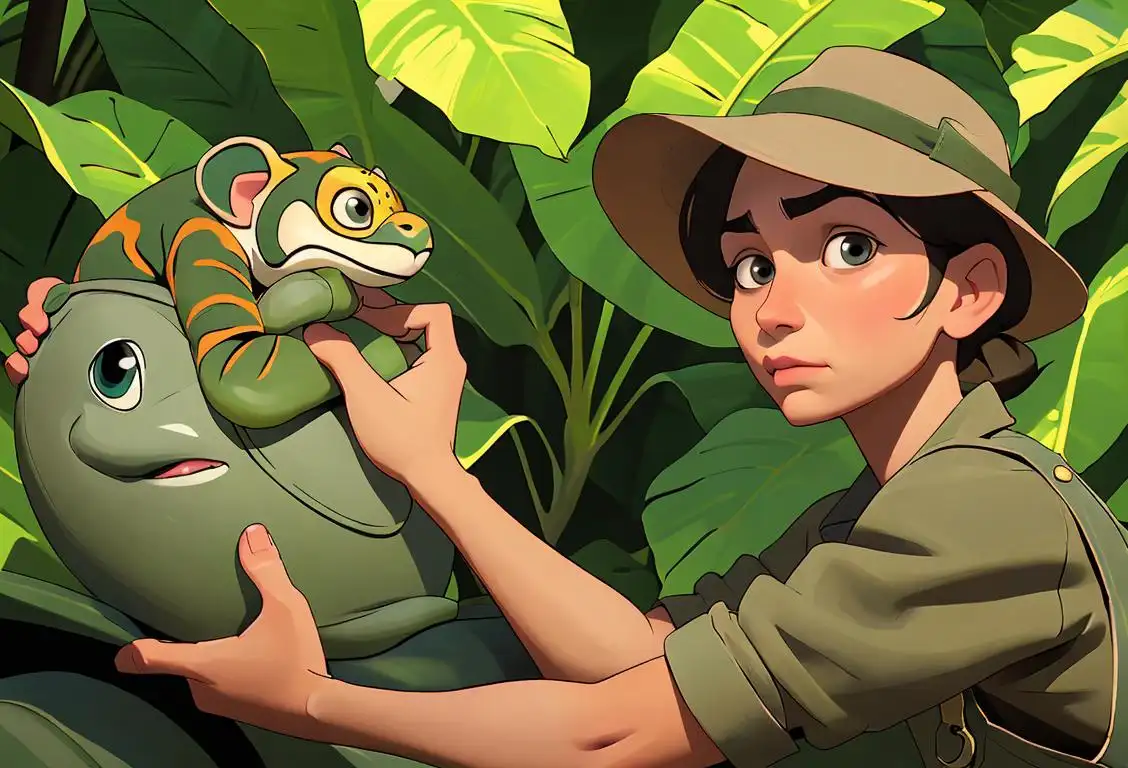National Zookeeper Week To The Folks Who Save Species Every Day

Calling all wildlife enthusiasts! It's time to celebrate National Zookeeper Week and show some love to the unsung heroes who save species every day. This special week is dedicated to the hardworking zookeepers who live and breathe everything animal-related. Get ready to embark on a wild journey as we explore the fascinating world of zookeepers and their tireless efforts.
When is Zookeeper Week To The Folks Who Save Species Every Day?
It's national zookeeper week to the folks who save species every day on the 18th July.
The Incredible World of Zookeepers
Have you ever wondered what it takes to be a zookeeper? It's no walk in the park, let me tell you. These dedicated individuals are a rare breed themselves. They have a passion for animals that goes beyond just cuddling cute critters (although that's certainly a perk!). Zookeepers are the guardians of the animal kingdom, working tirelessly to ensure the health, safety, and welfare of the animals under their care.
From early morning feeding sessions to late-night medical emergencies, a zookeeper's day is filled with excitement and challenges. They clean enclosures, administer medications, design enrichment activities, and monitor behavioral patterns. Essentially, they're the equivalent of a personal trainer, therapist, nutritionist, and caretaker all rolled into one.
Behind the Scenes: Saving Species
While it may seem like zookeepers spend most of their time entertaining visitors, their primary focus is often on breeding programs and conservation efforts. They play a crucial role in maintaining healthy populations of endangered species, ensuring their survival for future generations.
Many zookeepers are actively involved in research projects, working collaboratively with institutions, scientists, and conservation organizations to better understand and protect wildlife. Through their concerted efforts, they're helping to preserve biodiversity and prevent the extinction of countless species.
An Unforgettable Bond
One of the most remarkable aspects of being a zookeeper is the profound connection they form with the animals. It's a bond forged through trust, care, and respect. Zookeepers often know each animal on a personal level, understanding their unique personalities, quirks, and preferences. They provide a sense of security and comfort, ensuring the animals feel at home in their zoo habitats.
While the work can be physically and emotionally demanding, the rewards are immeasurable. The joy of witnessing a successful birth, the delight in observing a recovered animal thriving, and the satisfaction of knowing they've made a positive impact in the lives of these remarkable creatures are all part of the zookeeper's journey.
History behind the term 'Zookeeper Week To The Folks Who Save Species Every'
1889
Birth of the modern zoo
In 1889, the modern zoo as we know it today was born. This was a time when people started to recognize the importance of conserving and protecting wild animal species. Zoos became a place for not only entertainment but also education and conservation. The concept of a zookeeper, someone responsible for the care and management of the animals, started to take shape.
1916
Formation of the first zookeeper association
In 1916, the first zookeeper association, known as the American Association of Zoo Keepers (AAZK), was established. This marked a significant milestone in the recognition of zookeepers as professionals and the importance of their role in the conservation of species. The AAZK aimed to provide support, education, and a professional network for zookeepers.
1945
Zookeeper Week initiated
In 1945, the concept of honoring zookeepers and raising awareness about their crucial role in wildlife conservation gave rise to Zookeeper Week. This week-long celebration was designated to acknowledge the dedication and hard work of zookeepers around the world. It also aimed to educate the public about the challenges faced by zookeepers and the need for wildlife preservation.
1971
Global recognition of zookeepers
By 1971, the significance of zookeepers had gained global recognition. The World Association of Zoos and Aquariums (WAZA) was established, emphasizing the importance of zookeepers in the mission of protecting and conserving species from all corners of the world. The efforts of zookeepers were acknowledged not only locally but internationally, emphasizing the need for collaboration in wildlife preservation.
1995
Expansion of Zookeeper Week
In 1995, Zookeeper Week expanded beyond the United States and started to be celebrated worldwide. Zookeepers across the globe were recognized for their exceptional commitment to saving species and educating the public. This expansion marked a significant step in fostering a global community of zookeepers, sharing knowledge, and enhancing the collective effort to protect the world's wildlife.
Present day
Continuing dedication to species preservation
Today, Zookeeper Week continues to be an annual celebration held during the third week of July. It serves as a reminder of the tireless efforts of zookeepers in ensuring the welfare and conservation of animal species. Zookeepers play a crucial role in educating the public, conducting vital research, and working towards the long-term survival of endangered and threatened species, making the world a better place for both animals and humans.
Did you know?
Did you know that some zookeepers even have special talents like mimicking animal vocalizations? Imagine a zookeeper giving a roaring performance! They sure know how to speak the language of the animal kingdom.Tagged
awareness funFirst identified
18th July 2016Most mentioned on
18th July 2016Total mentions
76Other days
Nurses Day
Former Prisoner Of War Recognition Day
Press Day
Handloom Day
Heroes Day
Memorial Day
Dance Day
Bestfriends Day
Liberation Day
Love Your Pet Day









